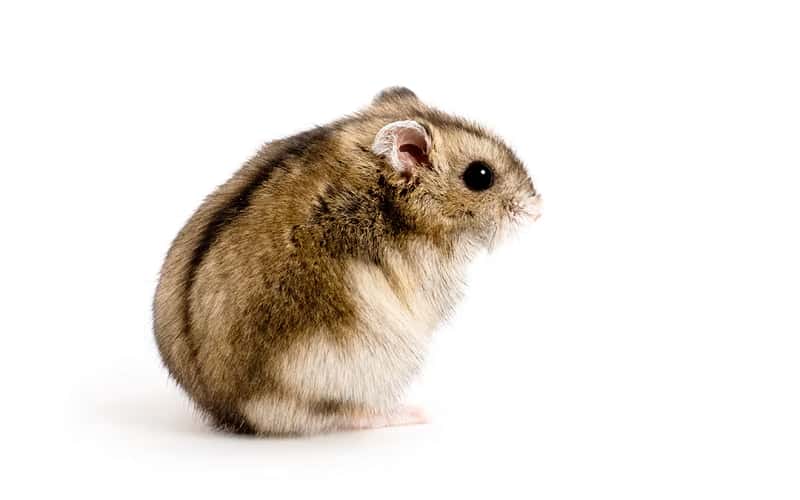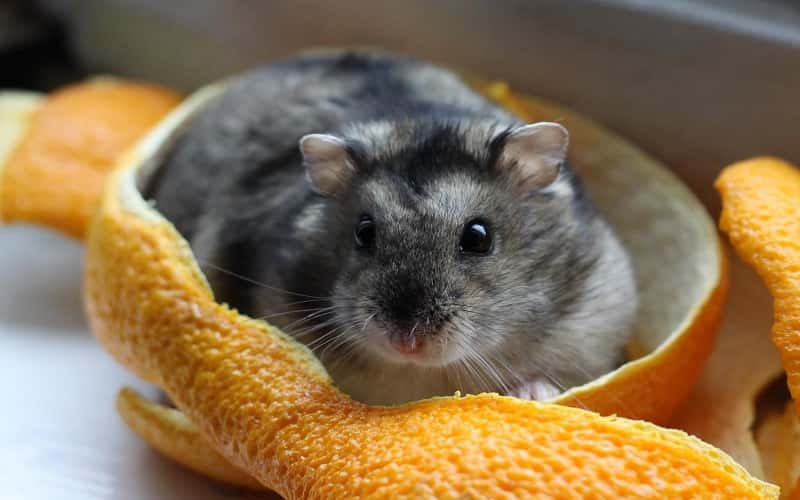Dwarf hamsters are popular and adorable pets that bring joy to many households. As with any pet, there are often questions and concerns that arise regarding their behavior, health, and general care.
In this article, we will address some frequently asked questions (FAQs) about dwarf hamsters, providing detailed explanations and specific examples to help you understand these small and fascinating creatures better.
Is Dwarf Hamsters Friendly?
Dwarf hamsters can exhibit varying degrees of friendliness, depending on their individual personality and upbringing. While some may be naturally more sociable and enjoy human interaction, others might be more timid or prone to nip when handled.
It’s important to remember that dwarf hamsters are prey animals by nature and may feel vulnerable when exposed. However, with patience, proper handling, and gradual socialization, most dwarf hamsters can become comfortable and friendly with their owners.
Why is my Dwarf Hamsters Losing Hair?
Hair loss in dwarf hamsters can have several causes, including natural shedding, skin infections, allergies, or mite infestations. If you notice excessive hair loss or bald patches on your hamster, it’s essential to monitor their behavior and consult a veterinarian if necessary.
A vet can determine the underlying cause and recommend appropriate treatment, such as medicated shampoos or dietary adjustments, to promote healthy hair regrowth.

Why is my Dwarf Hamsters Licking me?
When a dwarf hamster licks its owner, it is typically a sign of affection and trust. Hamsters use their tongues to groom themselves, and when they lick you, they perceive you as part of their “family.” This behavior demonstrates that your hamster feels comfortable and bonded with you.
Enjoy this gesture of love and continue providing your hamster with a safe and nurturing environment.
Why is my Dwarf Hamsters Shaking?
Shaking or trembling in dwarf hamsters could indicate various conditions, including fear, stress, illness, or old age. If your hamster is exhibiting frequent or severe shaking, it’s crucial to observe their overall health and behavior for any additional symptoms.
Providing a calm and quiet environment, ensuring a proper diet, and consulting a veterinarian if the shaking persists are important steps to address this concern effectively.
Why do Dwarf Hamsters get Lonely?
Dwarf hamsters are naturally social animals that thrive in the presence of their own kind. When kept alone, they can experience loneliness and boredom, which can lead to depression and undesirable behaviors.
It’s highly recommended to house dwarf hamsters in pairs or small groups, as long as they are introduced gradually and have enough space and resources to coexist peacefully. Socializing with their peers allows them to engage in natural behaviors, reducing the chances of loneliness.
Why are Dwarf Hamsters Social?
Dwarf hamsters exhibit social behavior because they are naturally inclined to live in colonies or family groups in the wild. By being social, they establish hierarchies, groom each other, and engage in play, which contributes to their overall well-being.
In captivity, providing opportunities for social interaction through appropriate housing arrangements and supervised playtime can help mimic their natural social structure and ensure their social needs are met.
Why do Dwarf Hamsters kill each other?
While dwarf hamsters typically enjoy living in groups, territorial aggression can arise, leading to fights and even fatal outcomes. Male dwarf hamsters, in particular, tend to be more aggressive toward one another.
It is essential to provide each hamster with sufficient space, separate living areas, and multiple resources, such as food dishes and hiding spots, to minimize conflict and prevent serious injuries. If aggression persists, it may be necessary to separate the hamsters permanently.
Why do Dwarf Hamsters eat their Babies?
In some cases, dwarf hamsters may exhibit cannibalistic behavior by eating their own offspring. This behavior typically happens when the mother feels threatened, stressed, or senses that the newborns are weak or unhealthy. To reduce the chances of this occurring, it’s crucial to provide a quiet and undisturbed nesting area for pregnant hamsters.
Ensuring a stress-free environment, providing appropriate nutrition, and avoiding unnecessary handling during the birthing process can help prevent such situations.
Why do Dwarf Hamsters Fight?
Dwarf hamsters may fight due to territorial disputes, hierarchy establishment, competition for resources, or reproductive conflicts. The intensity and frequency of fights can vary among individuals and species.
To minimize fighting, it’s essential to provide ample space, separate living areas if necessary, and ensure an adequate supply of food, water, and toys for each hamster. Monitoring their interactions closely and intervening if aggression escalates will help maintain a harmonious environment.

Why do Dwarf Hamsters Die?
Dwarf hamsters have relatively short lifespans ranging from 1.5 to 3 years, and their deaths can be attributed to various factors, including old age, genetic predispositions, infections, injuries, inadequate care, or underlying health conditionssuch as tumors or organ failure.
It is essential to provide proper nutrition, a clean and comfortable habitat, regular veterinary check-ups, and attentive care to maximize their lifespan. Sudden or unexplained deaths should be investigated by a veterinarian to determine the cause and take appropriate measures if needed.
Why do Dwarf Hamsters Squeak?
Dwarf hamsters may squeak for various reasons, including fear, pain, stress, or communication. If a hamster feels threatened or uncomfortable, they might emit a high-pitched squeak as a warning signal. Additionally, when interacting with their owners or other hamsters, they may use squeaks to express excitement or establish dominance.
It’s important to observe the context and accompanying behaviors to understand the meaning behind their squeaks and ensure their well-being.
Why do Dwarf Hamsters Bite?
Biting behavior in dwarf hamsters can have multiple causes, including fear, feeling threatened or cornered, mistreatment, or territorial aggression. Hamsters have sharp incisors that they may use defensively if they perceive danger.
To prevent biting, it’s crucial to handle them gently, respect their personal space, and gradually build trust through positive interactions. If biting becomes a persistent issue, it’s advisable to consult with a professional animal behaviorist or veterinarian for guidance.
Why do Dwarf Hamsters Hibernate?
Dwarf hamsters are not known to hibernate like some other mammal species. However, they can enter a state of torpor, especially in response to extreme temperature fluctuations or inadequate environmental conditions.
Torpor is a temporary reduction in metabolic rate, where the hamster becomes less active and conserves energy. It’s crucial to maintain a stable and suitable temperature range (around 65-75°F or 18-24°C) in their habitat to prevent torpor-like behavior and ensure their well-being.
Conclusion
In conclusion, understanding the frequently asked questions about dwarf hamsters can help you provide better care and create a harmonious environment for these tiny pets. From their friendliness and grooming behavior to potential health concerns and social needs, addressing these FAQs allows you to develop a deeper bond with your dwarf hamster and ensure their happiness and well-being.
Remember to consult with a veterinarian or animal expert for specific concerns regarding your individual hamster’s care. Enjoy the delightful companionship of your dwarf hamster and cherish the wonderful moments they bring to your life.
Source: https://petscaretip.com/
